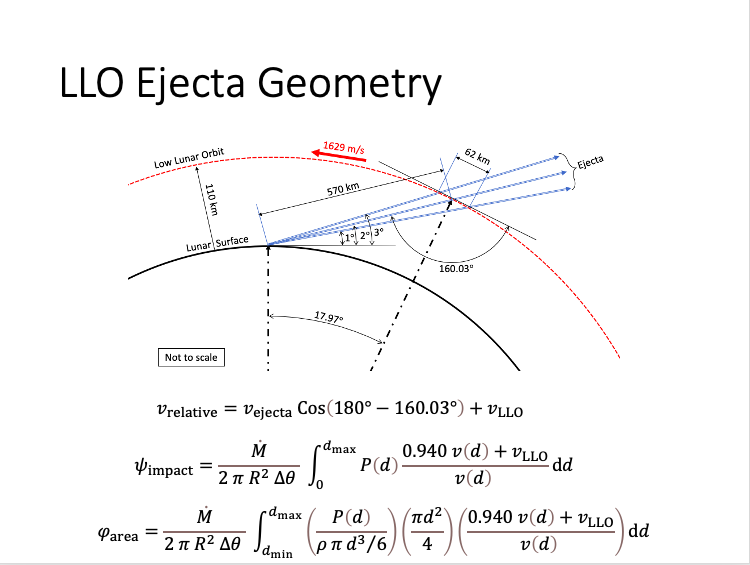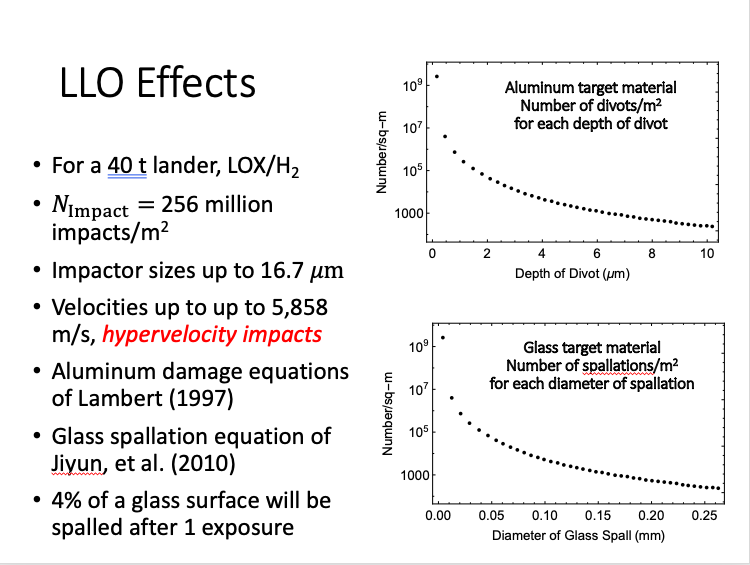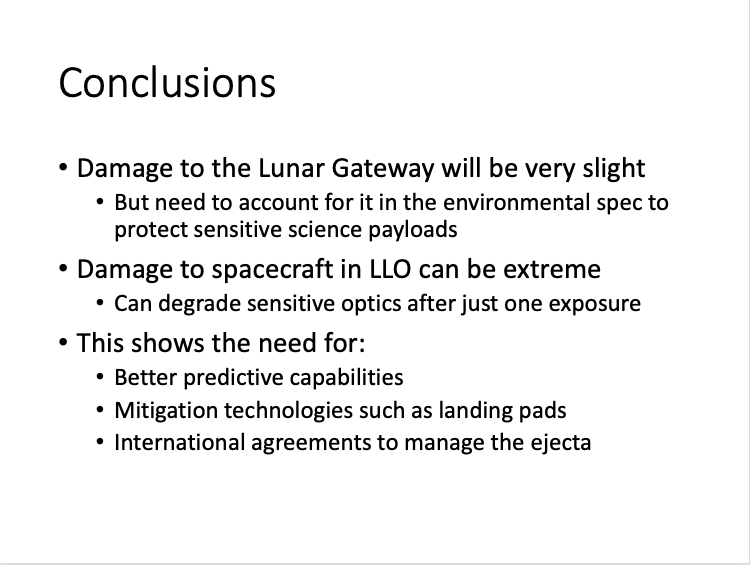From the talk I gave at the ASCE Earth & Space conference today. When you land on the Moon, your rocket exhaust is faster than lunar escape velocity and there is no atmosphere to slow down the dust you blow. We need to worry about damaging things in orbit.
Short thread... /1
Short thread... /1
We& #39;ve done a lot of experimental work to understand how much lunar soil will blow because of the rocket exhaust during a landing. The work included reduced gravity flights measuring soil erosion in lunar gravity. /2
As you would expect, erosion rate is faster when gravity is lower. That part of the physics is easily understood, at least. Erosion of soil on another planet scales as 1-over-gravity. /3
The equation shows that erosion is proportional to the shear stress that the rocket exhaust causes upon the lunar surface, and inversely proportional to the energy that it takes to lift a lunar sand grain. Seems pretty obvious, now, but it took years of work to prove this. /4
However, there are huge uncertainties, like what happens when the gas expands into vacuum so the viscosity breaks down and it stops acting like a normal gas? What happens to turbulence (which is crucial to soil erosion)? Etc. Lots of unsolved physics, here! /5
But doing the best we can, this shows how much soil will blow as a function of the mass of the lunar lander. The Apollo LM was 5-7 tons. Future landers will blow a LOT more soil. (This graph assumes the engines UNDER the vehicle. I know...not all landers are like that https://abs.twimg.com/emoji/v2/... draggable="false" alt="👍" title="Daumen hoch" aria-label="Emoji: Daumen hoch">
https://abs.twimg.com/emoji/v2/... draggable="false" alt="👍" title="Daumen hoch" aria-label="Emoji: Daumen hoch"> https://abs.twimg.com/emoji/v2/... draggable="false" alt="🙂" title="Leicht lächelndes Gesicht" aria-label="Emoji: Leicht lächelndes Gesicht">) /6
https://abs.twimg.com/emoji/v2/... draggable="false" alt="🙂" title="Leicht lächelndes Gesicht" aria-label="Emoji: Leicht lächelndes Gesicht">) /6
Here is what happens after the soil is blown off the Moon. The smallest dust goes 5X the speed of a bullet, so it looks like a straight line over this distance. An orbiting spacecraft might fly through this ejecta as it is blown off the Moon. /7
The number of dust particles that hit the spacecraft is 256 million per square meter. It is so many because they are so small. Most of them are smaller than a micron. But it adds up to a LOT of damage. One exposure could chip of 4% of a piece of glass, like a camera lens. /8

 Read on Twitter
Read on Twitter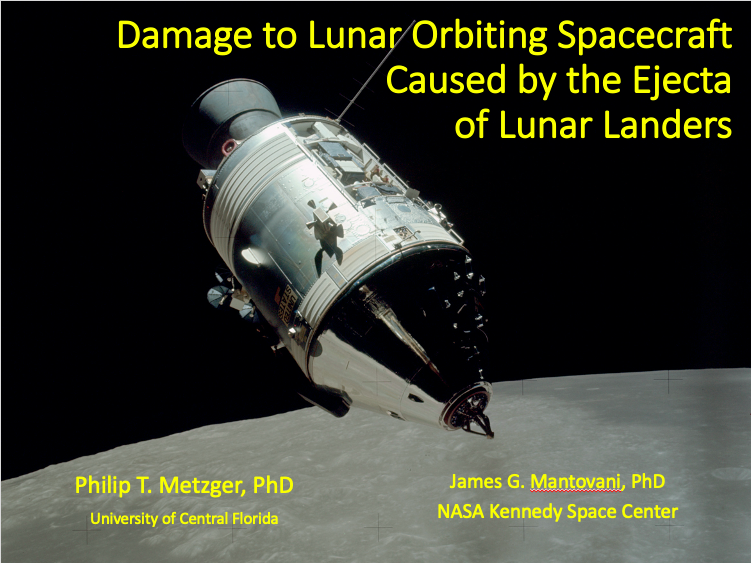
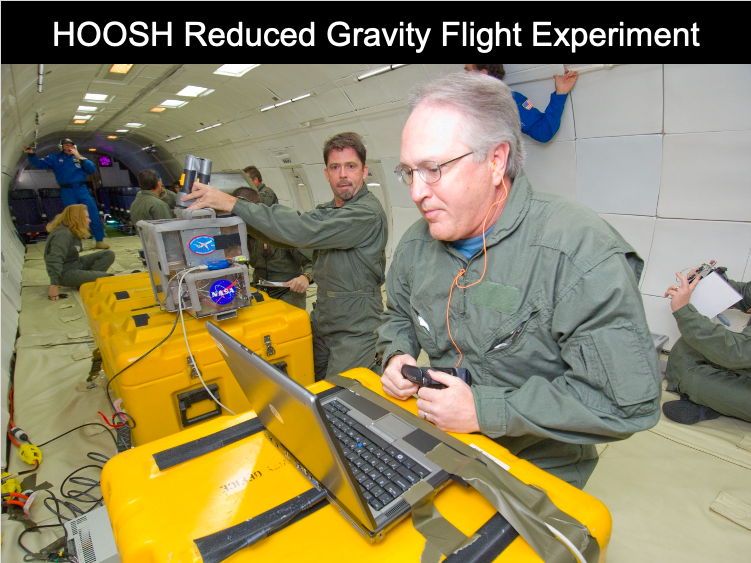
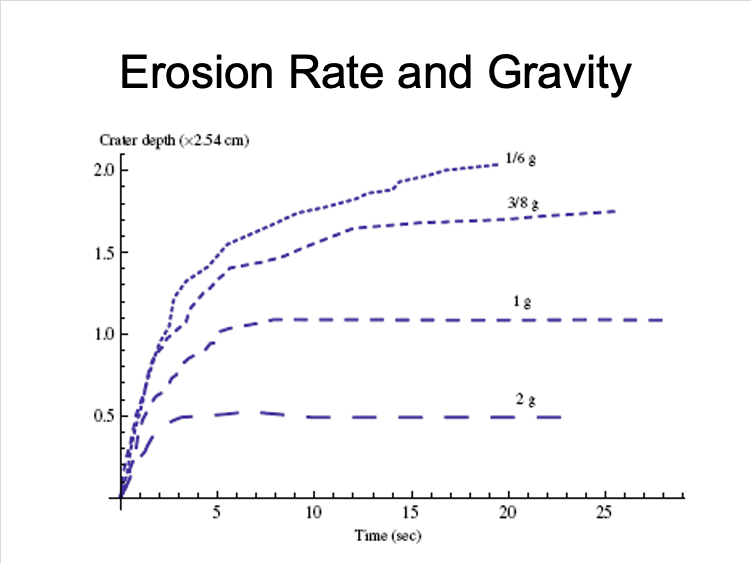
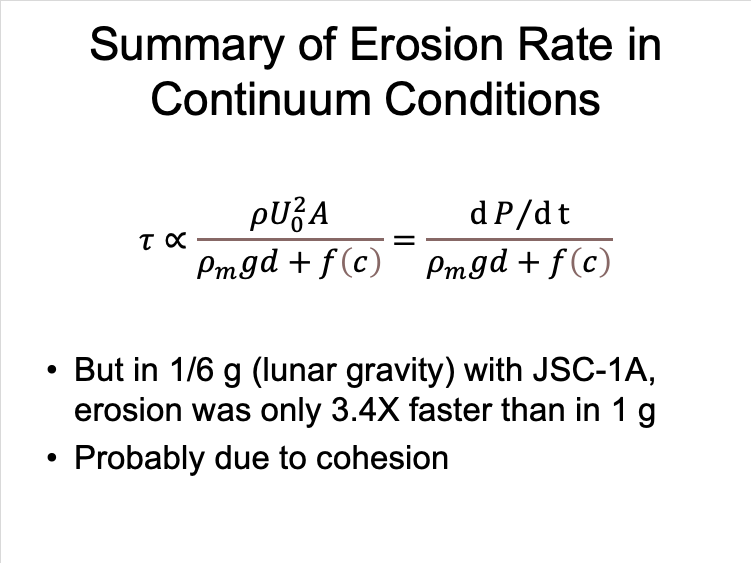
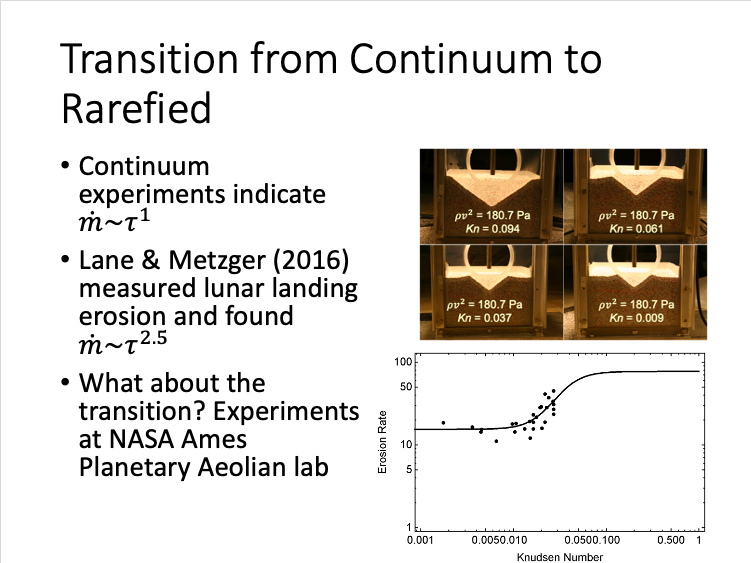
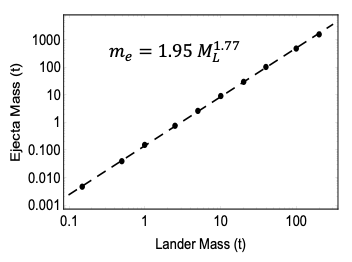 https://abs.twimg.com/emoji/v2/... draggable="false" alt="🙂" title="Leicht lächelndes Gesicht" aria-label="Emoji: Leicht lächelndes Gesicht">) /6" title="But doing the best we can, this shows how much soil will blow as a function of the mass of the lunar lander. The Apollo LM was 5-7 tons. Future landers will blow a LOT more soil. (This graph assumes the engines UNDER the vehicle. I know...not all landers are like thathttps://abs.twimg.com/emoji/v2/... draggable="false" alt="👍" title="Daumen hoch" aria-label="Emoji: Daumen hoch">https://abs.twimg.com/emoji/v2/... draggable="false" alt="🙂" title="Leicht lächelndes Gesicht" aria-label="Emoji: Leicht lächelndes Gesicht">) /6" class="img-responsive" style="max-width:100%;"/>
https://abs.twimg.com/emoji/v2/... draggable="false" alt="🙂" title="Leicht lächelndes Gesicht" aria-label="Emoji: Leicht lächelndes Gesicht">) /6" title="But doing the best we can, this shows how much soil will blow as a function of the mass of the lunar lander. The Apollo LM was 5-7 tons. Future landers will blow a LOT more soil. (This graph assumes the engines UNDER the vehicle. I know...not all landers are like thathttps://abs.twimg.com/emoji/v2/... draggable="false" alt="👍" title="Daumen hoch" aria-label="Emoji: Daumen hoch">https://abs.twimg.com/emoji/v2/... draggable="false" alt="🙂" title="Leicht lächelndes Gesicht" aria-label="Emoji: Leicht lächelndes Gesicht">) /6" class="img-responsive" style="max-width:100%;"/>
